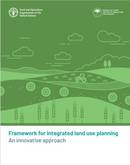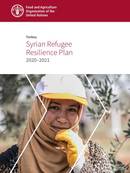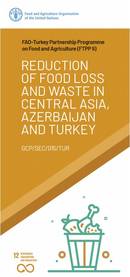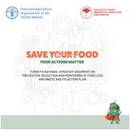Publications
Population growth is driving increasing demand for food and other agricultural and forest products. Achieving food security with existing farming practices is likely to lead to more intense competition for natural resources, increasing greenhouse gas emissions, and further land degradation and deforestation. Furthermore, market-driven land use patterns are provoking unsustainable use of land resources and irreversible loss of biodiversity and fertile soils. All these trends pose a threat to agricultural production, food security, and the generation of ecosystem services. Land-use planning should thus make careful consideration of climate change resilience and ecosystem management. However, the implementation of land use plans involves a number of challenges that require resolution. Key measures include the adoption of actual sustainable land management (SLM) alternatives facilitated by an enabling environment with appropriate policies and legislation, ensuring a secure land tenure system, and mobilizing medium and long-term financial investments. Considering the above-mentioned challenges, this document developed by the Food and Agriculture Organization of the United Nations (FAO) provides an integrated land use planning (ILUP) approach to assist with inter-sectoral planning processes and implementation for the sustainable use of land resources. It provides guidance to assess several baseline aspects, including the suitability of agricultural production systems, and the examination of soil and land degradation and socio-economic factors affecting household decision-making on land-use and natural resources management in agricultural landscapes, and aims to assist with developing country-specific recommendations for the implementation of an agreed intersectoral plan.
The Syrian Refugee Resilience Plan (SRRP) aims to directly support the resilience of more than 60 000 households (approximately 300 000 people, of which at least 40 percent are women and women-headed households) from Syrian and host communities in Turkey affected by the Syrian crisis. National and local government bodies, non-governmental organizations (NGOs) and local institutions such as associations and cooperatives will also benefit from the SRRP directly and indirectly through capacity-building initiatives. The implementation of the SRRP will require a budget of USD 111 million during the two-year period of 2020–2021 (USD 49 million for 2020, and USD 62 million for 2021)





